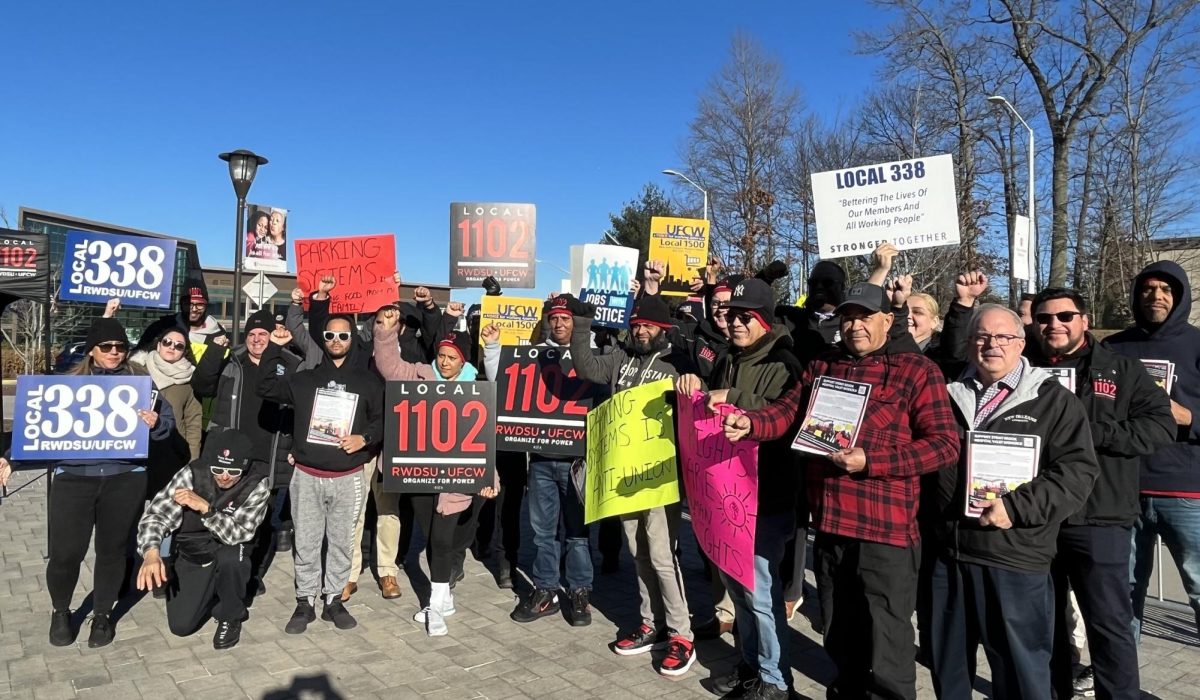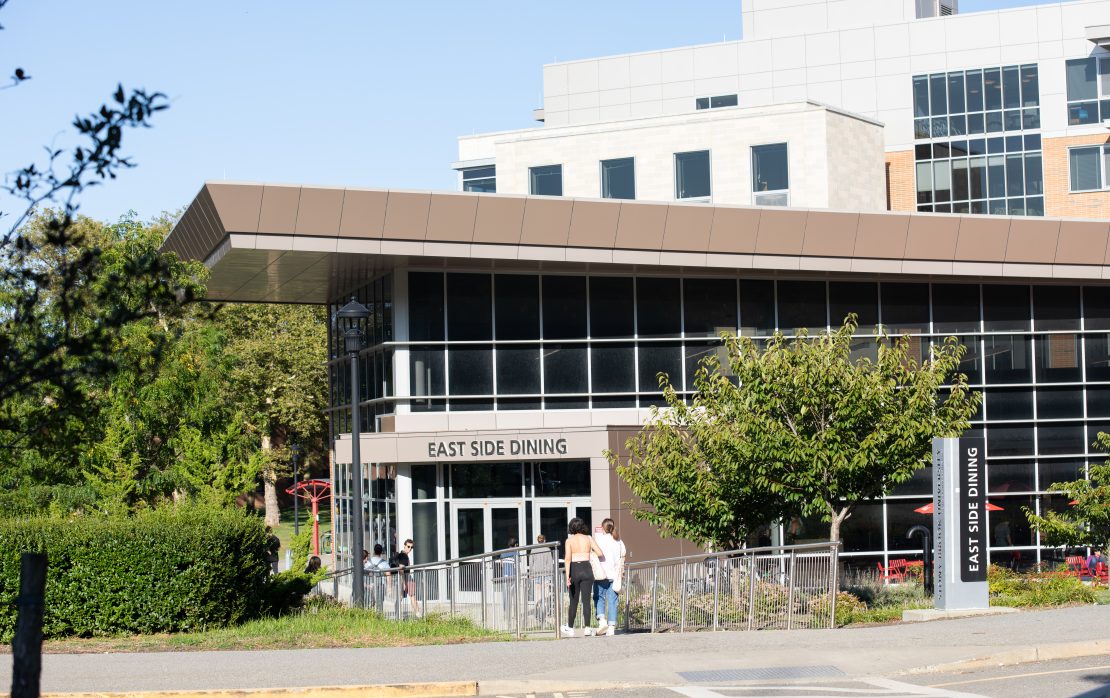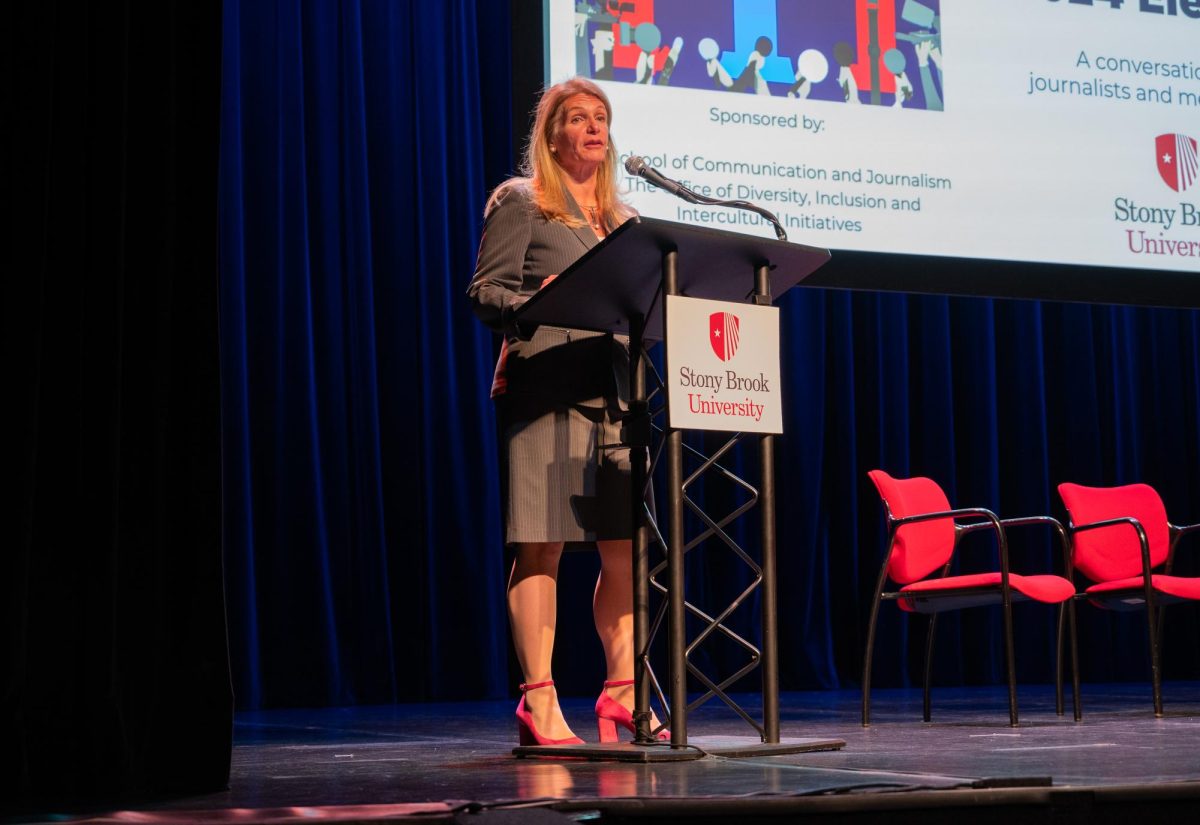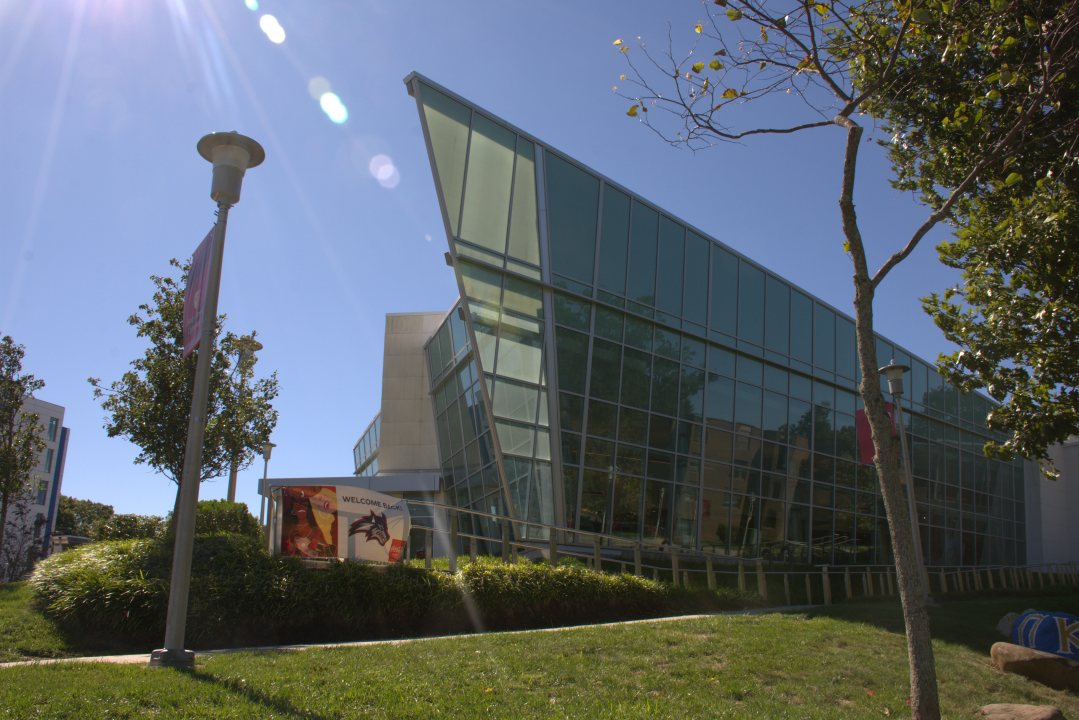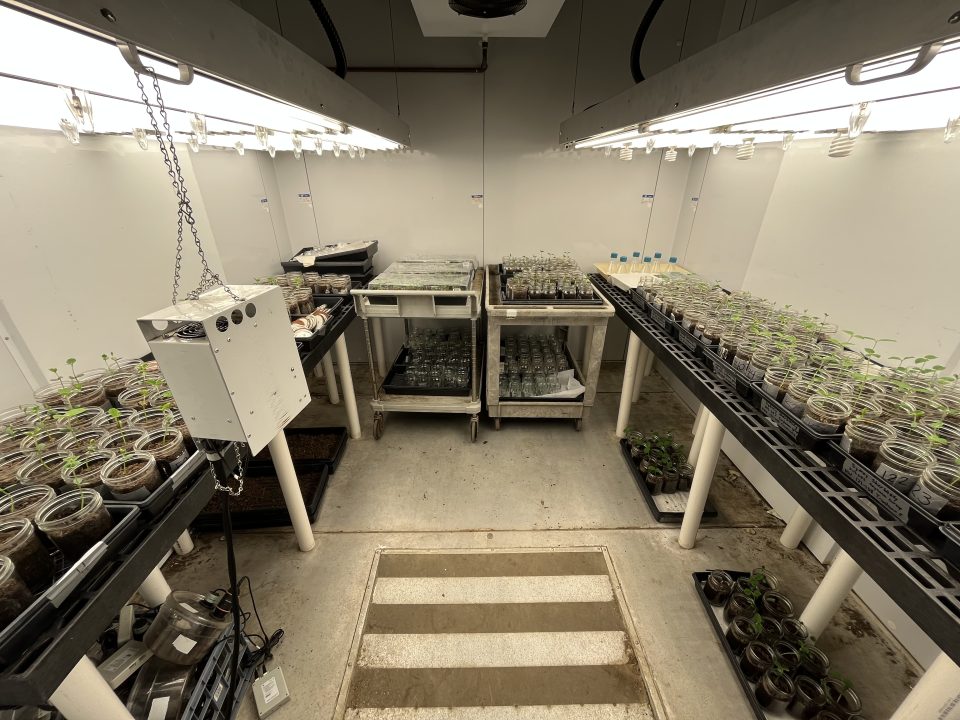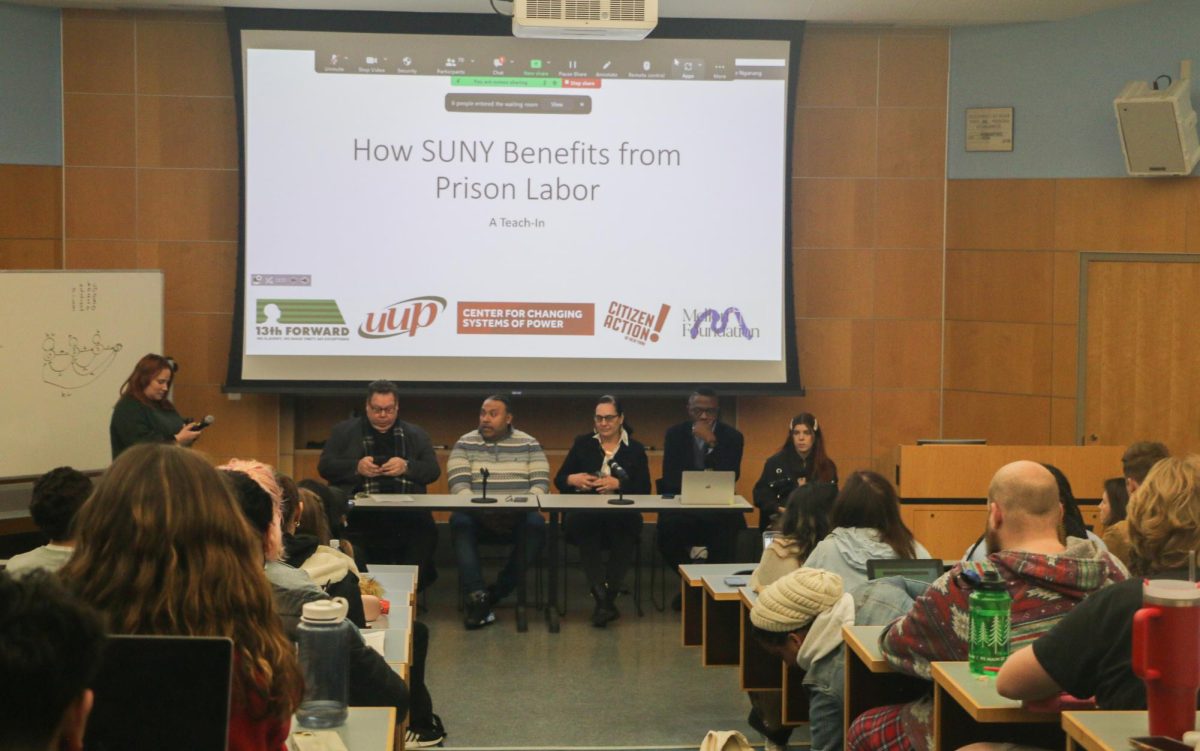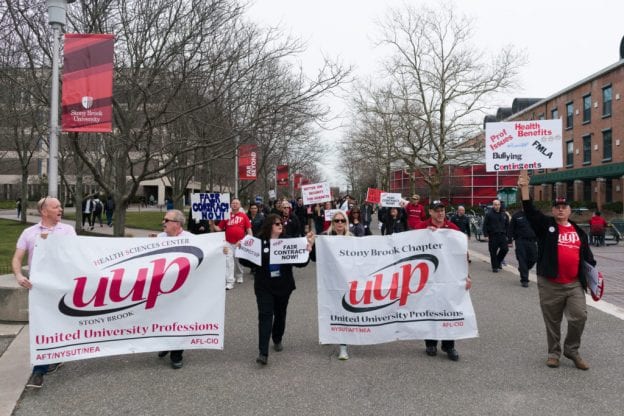
More than 100 people have signed a petition to delay an in-person return to work for Stony Brook employees as early as March 1, arguing that it violates the terms of a union-negotiated telecommuting agreement.
The petition, posted by the United University Professions (UUP) Member Action Coalition (MAC) at Stony Brook University, claims that this mandate violates a state-wide telecommuting pilot program negotiated on behalf of UUP-represented employees, which was extended to April 2.
UUP is a union that represents faculty and staff in the State University of New York (SUNY) system. MAC, which does not represent UUP at Stony Brook or on the state-wide level, is an organized caucus of members within UUP advocating for a more transparent and equitable workplace. Several MAC members are running for officer positions in the upcoming Stony Brook UUP elections.
MAC requests in the petition that the state-wide UUP continue to advocate for vaccine access for any and all professional staff working in-person with students, and “vigorously advocate” for Governor Andrew Cuomo to extend the current telecommuting agreement to at least the end of summer.
At Stony Brook, the petition calls on university administrators to delay an in-person return to work until the summer, since most classes and campus activities are online until the end of the Spring 2021 semester. It also requests that employees be allowed to work remotely without limitations or repercussions, and to establish clear policies that do not conflict with existing UUP agreements.
Andrew Solar-Greco, a MAC member running for UUP president, said West campus employees did not receive enough notice to screen for COVID symptoms for the required 14 days. He called the decision a “major safety issue.”
“Why are we having folks who are being told to return to work when this telecommuting agreement is still in effect?” he said. “And it’s a major kind of safety issue, in that it’s concerning that our campus administration is not relying on data driven policy and evidence to make their policy decisions and not following the scientific method that we would hope would guide an R1 university research institution.”
He raised concerns about new strains of COVID-19 reaching Long Island, such as the U.K. and South Africa variants, and questioned whether it was safe for employees who have not been vaccinated yet to work in-person.
Right now, New York state is prioritizing vaccine distribution for those deemed at risk or essential workers. That designation currently encompasses individuals who are at risk or 65 years and older, SUNY police and in-person college faculty and instructors, among others.
Only some Stony Brook employees started in-person work on March 1, as the university plans for a gradual return to normalcy. Rosalia Davi, a MAC member running for VP Professionals at Stony Brook’s UUP chapter, pointed out that some supervisors may offer more flexibility than others, creating a very different work experience for employees.
“That is another really important issue that I don’t feel has been addressed well, and any of the communications that are either coming out from the UUP chapter or from senior administration, there’s just too much room for interpretation,” she said. “If you’re fortunate, and you work for someone who is really flexible and understanding, then, you know, you might have a very different experience coming back to work than one of your colleagues.”
Both Davi and Solar-Greco pointed out that Stony Brook employees who are working parents or members of minority communities will have different experiences coming back to work as well.
“The vaccine is a huge problem for people of color,” Solar-Greco said. “There’s been greater death in these communities. And all of these issues disproportionately affect women, in addition to people of color.”
At a university faculty senate meeting on March 1, Vice President of Human Resources Lynn Johnson said the Phase 5 return to work the same day “was very clearly just the beginning of a phase.”
“As with all our other phases, there’s a pretty extensive period of time so that people can work with their departments to see what works best both for the department and the individual in terms of returning,” she said. “I didn’t come into the parking garage this morning expecting to see an influx of cars. But we do want people to start coming back gradually, and this gives us the opportunity for our professional staff to explore with their supervisors, how they might do that in a very gradual way.”
She pointed out that Stony Brook has put several safety precautions in place, including frequently testing the campus population, and that the infection rate on campus is much lower than the surrounding community.
Johnson emphasized similar points in an email to The Statesman.
“It’s important that Stony Brook University continues to move in a deliberate forward direction where faculty and staff return, and students resume their in-person education, while practicing the risk mitigation measures that have resulted in consistently lower COVID cases on campus than in our surrounding communities and Suffolk County,” she wrote.
She said Stony Brook employees will gradually return to work starting in March, in accordance with the university’s Return to Work Plan. Employees on campus will need to complete a daily screening on the CampusClear app and participate in weekly COVID-19 testing.
Johnson noted that supervisors are working with their staff to determine the best way to “begin the return to their campus work locations,” and “depending on operational needs, [the university anticipates] that departments will continue to utilize staggered models during the spring to support appropriate social distancing.”
UUP wrote in a statement emailed to The Statesman that — although the petition does not represent the views of UUP or its Stony Brook chapter — Stony Brook’s MAC members are “valued UUP members … welcome to express their opinions and perspectives.”
It emphasized that the safety of its members is a “top priority” and the union is currently advocating to extend the telecommuting agreement through at least June 30. It also pointed to a January statement from UUP President Fred Kowal calling for all on-campus SUNY employees to be prioritized for vaccines.
“Since the beginning of the pandemic, UUP has been outspoken over the need for mandatory and surveillance COVID testing on campus for students, faculty and staff,” the statement read.











